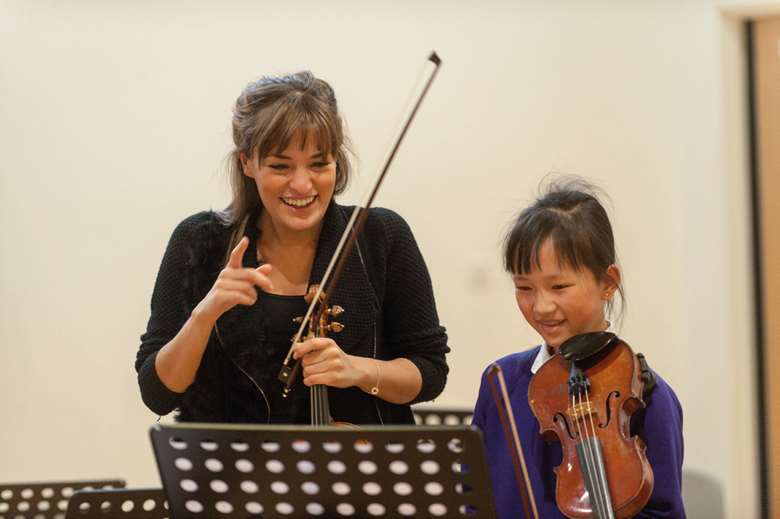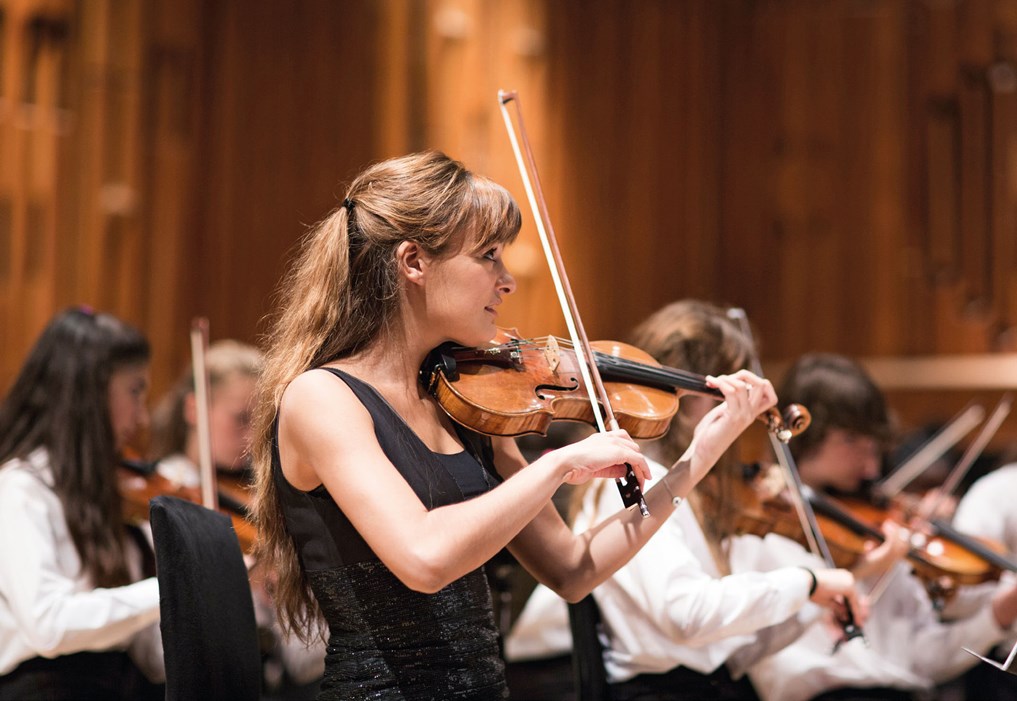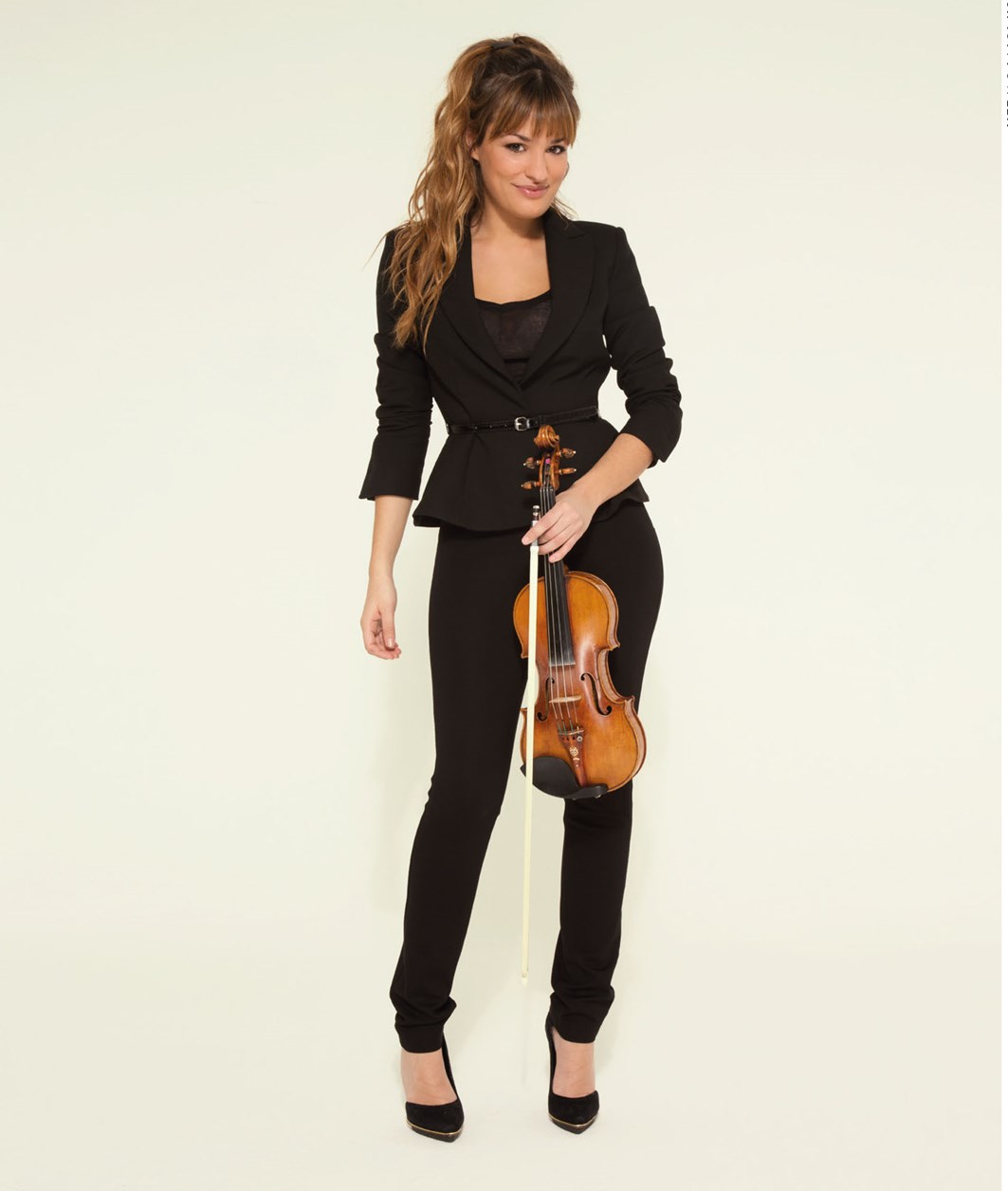Leading by example: Nicola Benedetti
Helena Ruinard
Monday, October 1, 2018
Violinist Nicola Benedetti has cemented her long-standing commitment to music education with a new role as president of the European String Teachers Association. She speaks to Helena Ruinard about collaboration, exams and wider cultural shifts.

Marc Marnie
Violinist Nicola Benedetti has a busy career as a soloist and chamber musician – at the time of her MT interview she'd just finished a stint at Edinburgh International Festival. But educational projects continue to take centre stage in her life: Benedetti works with Sistema Scotland and other organisations to advocate for classical music, most recently joining the group of musicians led by oboist Nicholas Daniel to campaign for every primary school child in the country to be taught to play an instrument.
What, then, drove Benedetti to take on the presidency of the European String Teachers Association (ESTA)? ‘I'm always seeing ways that I can work with existing organisations, asking myself, “How can I shine a bit more light on what they are doing; how can I help facilitate collaboration with concert halls, charities, individual musicians or orchestras?”,’ she says. ‘I think one of my main goals is to bring together like-minded organisations who don't already communicate for any other reason than that it hasn't happened yet.
‘The second reason it made sense is a personal priority to be a support for teachers.’ Although Benedetti already does a lot of work delivering masterclasses and leading large-scale workshops for children, she increasingly sees her role as that of supporting and encouraging teaching staff, even though it is not as immediately noticeable to the music community – and may not provide quite the same photo opportunities. ‘Instrumental teaching is an incredibly difficult job which is uphill and can often feel thankless.’ Teachers confide in Benedetti, sharing struggles of ‘the choking expectation on the part of some parents in private schools to get their children to pass grade exams, and conversely, the lack of support in many state schools – unless you find yourself in one of those rare situations where the headteacher recognises music as integral to a holistic education.’

Providing performance opportunities is something that Benedetti thinks students, teachers and parents can make happen together © BENJAMIN EALOVAGA
As teachers in either sector we are likely to find ourselves in a system where grade exams are given a lot of attention. Benedetti appreciates the challenges this brings: ‘I think for children and parents goals can be useful, and exams can provide those goals if the teacher or school are not familiar with providing playing opportunities. But if I was to choose between the two I would encourage teachers, students and parents to arrange little community concerts – just get a group of parents and kids together and play through pieces! If you did that once every month or once every half term, that, to me, would be preferable to working towards exams. I think it reminds you of why you are playing and it gives people some pleasure rather than it just being a means to an end in order to pass a test.’
Benedetti's own musical education centred around the Suzuki method. She is quick to qualify that she does not believe this is the only way, but it does inform her perspective on instrumental learning and exams. ‘I have some reflections on repertoire chosen by exam boards, and also the level and standard. I think certain things could be more ambitious and others more clearly focused on music-making – I have both positive and negative perspectives on the world of grade exams. When I was growing up, we had a lot of workshops where people would play together in little chamber groups, which I would say is a lot more in keeping with my idea of what a basic music education should look like.
‘Regarding pedagogy methods, I think the best thing any teacher or school can do is look far and wide, and combine the best of what you can find into something that is appropriate for your particular environment. The best teachers I have ever come across are those who recognise the benefits of a variety of methods, from Kodály to Dalcroze, Suzuki, Paul Rolland, Mimi Zweig and the Russian school of violin teaching.
‘Teaching can be solitary in that you are not always with others who are doing exactly what you're doing, so it can be difficult to stay inspired and motivated.’

© SIMON FOWLER
That's where professional associations like ESTA come in: ‘I would say it is hugely advantageous to belong to an organisation like ESTA because I think we all need to feel part of a community. If you can be part of a collective where you can see others who are doing something differently, or better and you can learn from them, I think that gives an energy boost to anybody in any workplace. Equally, it's important to be somewhere you can provide a sense of mentorship to younger people who are starting out.’
As well as ESTA, Benedetti works with a number of other national and regional organisations that aim to support young people's music-making skills and opportunities. These include: the National Children's Orchestra (as vice president), National Youth Orchestras of Scotland (junior orchestra patron), the Royal Conservatoire of Scotland (junior conservatoire patron), the Music in Secondary Schools Trust (patron) – and many others. Her passion about the status of music in schools quickly brings us to a discussion regarding the content of what is being taught and how it relates to wider societal values.
‘That music often takes low priority is true for our education but it's also true for our culture. You would have to have a massive change in consensus from a majority of the public to really make a significant difference. To me, there is a general apathy and lack of interest shown towards culture of the type where you're deeply engaged. It depends on a curiosity, it depends on an active style of listening. Yes, it is music for entertainment but it's also designed to challenge and for you to learn something from it.
‘I believe that every child in the country should be getting general musicianship lessons and that the quality of that lesson should be carefully considered to try to address a part of a child's development that a lot of the rest of school does not address.’
Finally, some bold thoughts and encouraging words on classical music in a time of unprecedented cultural diversity: ‘If you take the multicultural nature of a big city like London, it does open the door to a lot of different styles of music and all of their heritages and the cultural connotations behind those styles of music. To me that's not a reason to apologise for classical music being what it is, which is a certain type of written-down, large-scale, long-form music that has been developed and researched and studied and improved and taken to the nth degree over several centuries – and that level of refinement, expansion and increased complexity over time is not something that can be said for every style of music.’

